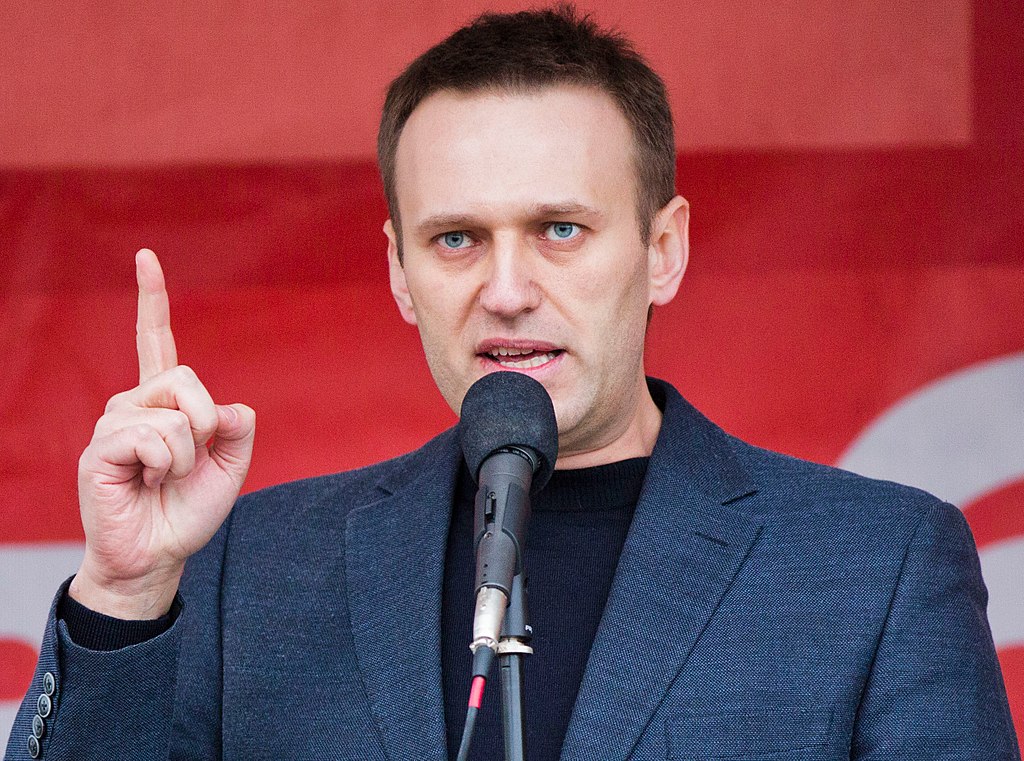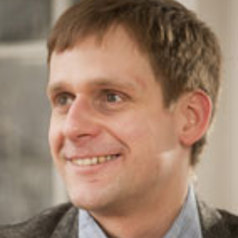After the dramatic flight into Moscow by Russian opposition figurehead Alexei Navalny – who arrived on a plane full of journalists, live streamed his defiant speech on arrival and was promptly detained at passport control – the basic question is: “What’s his plan?”
It had been clear for some time that he would be arrested as soon as he set foot in Russia – the authorities issued a warrant for his arrest on December 29. The message was clear: stay out of Russia, or face prison. Navalny defied the Kremlin and came anyway.
The dissident politician was jailed for 30 days by a Moscow court within 24 hours of stepping off the flight, on the grounds that he had violated the terms of his suspended sentence for embezzlement issued in 2017, a conviction he has always dismissed as being trumped up in order to deny him the chance to stand as a candidate in the 2018 presidential election. He will be held until a court rules on this new charge of parole violation.
Navalny’s situation calls to mind the Yukos affair, which became the defining episode of President Vladimir Putin’s first term. In 2003, Russia’s richest man Mikhail Khodorkovsky was under intense pressure to give up his Yukos oil empire and flee Russia. The oil company was expropriated for alleged tax avoidance and sold to Putin’s allies. Khordokovsky chose to stay and face prison.
At the time he thought it’d be impossible for Putin to arrest him due to domestic and international outcry. Instead he served ten years in a prison camp. Meanwhile the Russian economy prospered and the stock market boomed.
After lobbying by the German foreign minister, Hans-Dietrich Genscher, among others, Khodorkovsky was released in 2013 after being pardoned and went into permanent exile. He is still active as a sponsor of the Russian opposition through his Open Russia foundation, but his influence on Russian politics is negligible and it’s unclear what the ten years in prison were worth in terms of political capital.
Navalny clearly doesn’t want to become another Khodorkovsky. He wants to remain relevant politically and decided that the only way to do it is to be in Russia. But the dramatic entry aside, how is he planning on doing it from prison?
Courting danger
Navalny has two potential strategies for building support. First, his return to Russia and any unfair prison term he might receive could galvanise his supporters and the public at large. But this looks a little naive. While he’s the most recognised opposition leader in Russia, and has a core of committed supporters – particularly among the younger generations – his overall approval ratings are at -30%.
So, there’s little active support inside Russia for Navalny that would worry the Kremlin. There were no serious protests when he was poisoned and it’s unclear why would there be any larger ones now he has been detained again.
Second, there is international pressure: as soon as Navalny was arrested, there was a flurry of condemnations from western countries demanding his immediate release. But western protests never bothered Putin when Khodorkovsky was in jail – even at a time when Putin was still trying to build bridges with the US and Europe. Now Russia’s relations are in deep freeze after the 2014 annexation of Crimea, the accusations of Russian interference in the 2016 US presidential election or the poisoning of Sergei Skripal in the UK in 2018.
On each of these occasions, Russia was placed under significant economic and political sanctions. There’s nothing for the Kremlin to care about in terms of possible damage to its non-existent reputation in the west, or even further economic sanctions.
It’s inconceivable for Putin to let the west dictate to him how Russian politics should be run. Were Putin to release Navalny, it would create an untouchable opposition leader under western protection operating with impunity inside Russia. This would be akin to losing political sovereignty as far as Putin is concerned. So, the more the west piles on pressure to release Navalny, the more defiant Putin will be in keeping him in prison.
Risk of return
It’s possible that Navalny overestimates his own importance. Having survived a deadly poison attack against all odds, he might think his grand entry will start toppling Putin’s regime. Inevitable comparisons with Lenin, another famous revolutionary, spring to mind. Lenin was transported from his exile in Switzerland with the explicit support of the German High Command. Navalny was likewise given special treatment by the German authorities.
This might bode ill for Navalny’s future standing – an accusation of being a western “stooge” is clearly the line the Kremlin is all-too happy to pursue (see for example Putin’s remarks about Navalny’s links with the CIA at the last press conference).
There is an important difference too – Lenin arrived in April 1917, after the Tsarist regime had fallen. And he fled Russia again as soon as there was a danger of arrest in the summer of 1917. Navalny arrived expecting to be arrested in front of the world’s media. Lenin wanted power not publicity – Navalny seems to be happy for now with the status of a martyr.
Navalny is no rookie – he’s been around Russian politics for almost as long as Putin has been in power. From 2011 onwards, Navalny has steadily increased his status as the leading opposition figure – despite all the pressure from the Kremlin. From his point of view, having defied almost certain death by Novichok, he may think there is literally nothing more they can do to him now.
But if Navalny’s poisoning was a turning point in Russian politics, it might not be the turn he expects. Russia’s politics under Putin is often called “soft authoritarianism”. This relies on creating a fundamentally uneven political field skewed in the Kremlin’s favour. But it has shied away from mass political repression.
If – as some commentators think – Putin’s Russia is moving away from “soft” to “hard” authoritarian methods of control, then there may simply be no more place for Navalny’s type of politics with direct street actions and anti-corruption videos. For now, it seems Navalny will have to ponder all this from a prison cell.



 Elon Musk’s Empire: SpaceX, Tesla, and xAI Merger Talks Spark Investor Debate
Elon Musk’s Empire: SpaceX, Tesla, and xAI Merger Talks Spark Investor Debate  FxWirePro- Major Crypto levels and bias summary
FxWirePro- Major Crypto levels and bias summary 
































